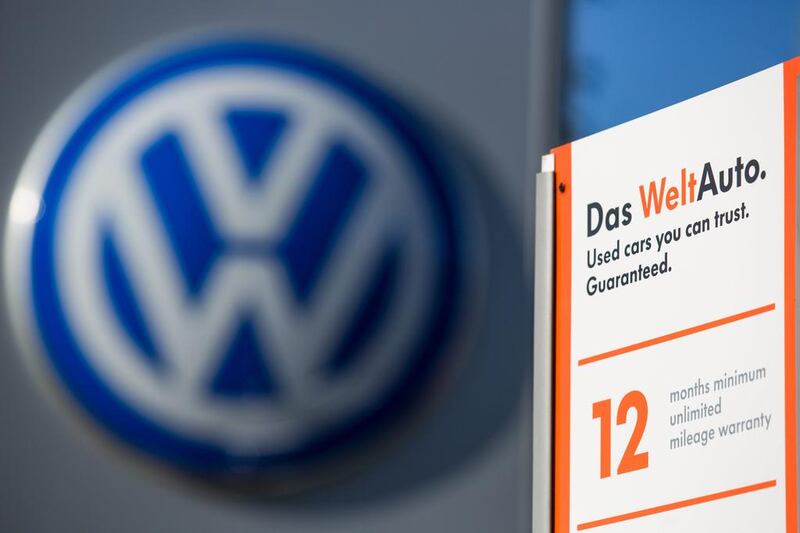The short drive I make to work every day has been given extra spice recently. Not by the rush-hour traffic that chugs around Mushrif Central Park. Not by the music I listen to on the way. Not even by any change to the road surface or the weather. No, the edge has been added by the car I drive: a Volkswagen Golf.
The manufacturer of my car has, as you will be aware, recently become embroiled in a damaging scandal.
VW fitted “defeat devices” to about 11 million of its diesel-powered cars. The software was able to detect when a car was under scrutiny and ensure the engine output met the standards required for emission-control tests. Once out of those test conditions, the software would return the engine to its normal operating mode.
The Golf I drive is a petrol-engined variant, which is unaffected by the scandal, but the German car maker is likely to suffer reputational damage far beyond America, where all the fuss started. Few, it is argued, will quickly forget that VW has been caught red-handed.
If you are to believe some commentators and analysts, the VW brand – and all its associated companies, including Audi, Bentley, Porsche and Skoda – is now broken almost beyond repair. Some experts also maintain that the crisis will have profound effects on VW’s sponsorship commitments in everything from football to its intended venture in Formula 1.
Am I alone in believing that this will not be the case?
Perhaps I think this way because I have a long history with VWs. I learnt to drive in a Polo and when I grew a little older I’d ferry my family around in a big, boxy seven-seat Touran. Now I drive around our SUV-choked roads in a Golf.
For me, VW cars are cleverly engineered vehicles that favour both form and function. While there are prettier, flashier and faster cars on the roads, there is, in my mind at least, little that is better or cheaper at delivering a solid and safe experience. It helps that the residuals, pre-scandal at least, were pretty good too.
Far from undermining my confidence in the car maker’s wares, the defeat device scandal only underscores to me quite how clever the engineers are in Wolfsburg. Imagine what they could put into a car if they weren’t waylaid by projects of a clandestine nature?
Interestingly, most of the car maker’s rivals have remained mute about whether they too have been bending the rules. Their silence is instructive.
That’s why I believe VW will ride out the storm, because the history of the car industry is littered with recalls and safety scandals and in each case – from the recent Fiat Chrysler computer hack to Toyota’s error-prone accelerator pedals – the manufacturer has bounced back relatively quickly.
Certainly, the VW engineers seem tailor-made for the rarified environs of F1 where every team seeks to gain a technical advantage through a combination of smoke, mirrors and sheer ingenuity.
If this scandal leads to greater honesty among all car makers about fuel consumption and emissions figures, then we all stand to win.
There has always been something intrinsically unfair about testing a car’s emissions in a controlled environment when that product is bound for the turmoil of the road.
If it only leads to the defeat of VW, then many will say they deserve everything that is coming to them.
I won’t be among them, although I will scratch my head and wonder how the safe, boring car that I thought I’d bought has suddenly become a poster-child for bad behaviour in the boardroom and out on the factory floor.
nmarch@thenational.ae





